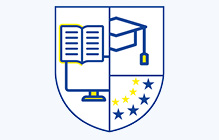Improving digital skills in the public sector

2019.01 Interoperability Academy
You are someone who:
- works in or for a public administration and wants to understand the interoperability issues and the way to deal with them;
- is responsible for digital skills in the public sector and wants to share or reuse learning resources, or/and;
- wants to use one or more of the interoperability solutions and you would like to receive a thorough training on how to use them.
What is this action about?
Over the years, the ISA/ISA² Programmes have generated diverse and varied solutions, which were accompanied by a number of learning resources such as presentations, videos and webinars. To present all the available learning resources in an organised manner and increase the implementation of the European Interoperability Framework (EIF), an ‘Interoperability Academy’ was established.
The Interoperability Academy hosts different types of learning resources and courses, which follow a tailor-made curriculum. The learning resources vary from live events (e.g. workshops, webinars, seasonal schools and trainings) to self-paced courses (e.g. fully animated, partly animated with the reuse of existing materials and topics format with the reuse of existing materials).
This action thus contributes to higher impact of the ISA² Programme and aims to improve the level of advanced digital skills in the public sector.
What are the objectives?
The action will improve efficiency of public administrations by:
- increasing the awareness of interoperability, ISA² solutions and CEF Building blocks via educational resources;
- supporting the European Digital Government Eco-System (EDGES) in Digital Europe Programme (DEP);
- creating learning opportunities accessible to all types of users from anywhere around the world and at any time;
- improving the level of advanced digital skills in the public sector with a focus in interoperability through a comprehensive cursus and different learning paths according to the user status (including a broad range of professions and backgrounds, e.g. IT background, legal or policy);
- supporting national, regional and local governments in the implementation of interoperability recommendations and more specifically in the alignment with the EIF, and;
- liaising with similar activities run by international organisations (OECD, UNESCO) or national, regional or even local administrations.
What are the benefits?
Overall, the Interoperability Academy is a key element for developing effective eGovernment services as it will equip employees of public administrations with the necessary skills to deliver faster and more efficient public services at a lower cost and with reduced administrative burden.
One of the main benefits of the Interoperability Academy is that it allows every citizen, irrespective of their background to become knowledgeable in interoperability and gain advanced digital skills by following an adaptable training path.
Specifically, the Interoperability Academy:
- offers access to a modern, user-friendly eLearning courses accessible 24/7 complemented with live trainings;
- encourages the participation in a community around advanced digital skills which actively promotes knowledge exchange;
- contributes to the development the required skills to achieve interoperable cross-border and cross-sector public services;
- awards certificate of completion for the majority of courses thus, enhancing career opportunities, and;
- improves the knowledge of public servants on the reuse of ISA² solutions, CEF Building blocks and supports the implementation of the EIF.
What has been achieved?
- Created a catalogue of educational resources produced in the context of ISA².
- Engaged with at least 16 initiatives and organisations targeting digital skills in the Public Sector (NL, CZ, IE, United Nations,…).
- Defined Learning paths according to learners’ profiles.
- Drafted and published a study on the development of a European framework for interoperability skills and competencies in the public sector.
- Published a set of resources for course development, managing and testing which can be used by anyone who wants to organise a course under Interoperability Academy.
- Developed a Digital Skills for Public Sector community which anyone interested in the topic can join and contribute.
- Exchanged knowledge and ideas with around 10 subject matter experts in order to shape IOP Academy.
- Evaluated and have at least 250+ learning materials ready for reuse.
- Published at least seven courses and coordinated multiple live events on the eLearning platform.
- Awarded at least 100 certificates of course completion.
- Integrated Open PM² activities by fostering adoption in member states.
What are the next steps?
In 2021, the action will focus on:
- Increasing stakeholder engagement with Member States and beyond to raise awareness about Interoperability Academy and promote synergies.
- Continuous production of high-quality eLearning courses.
- Organisation and coordination of interactive live events on the Interoperability Academy platform.
- Ensure the continuity in the Digital Europe Programme.

